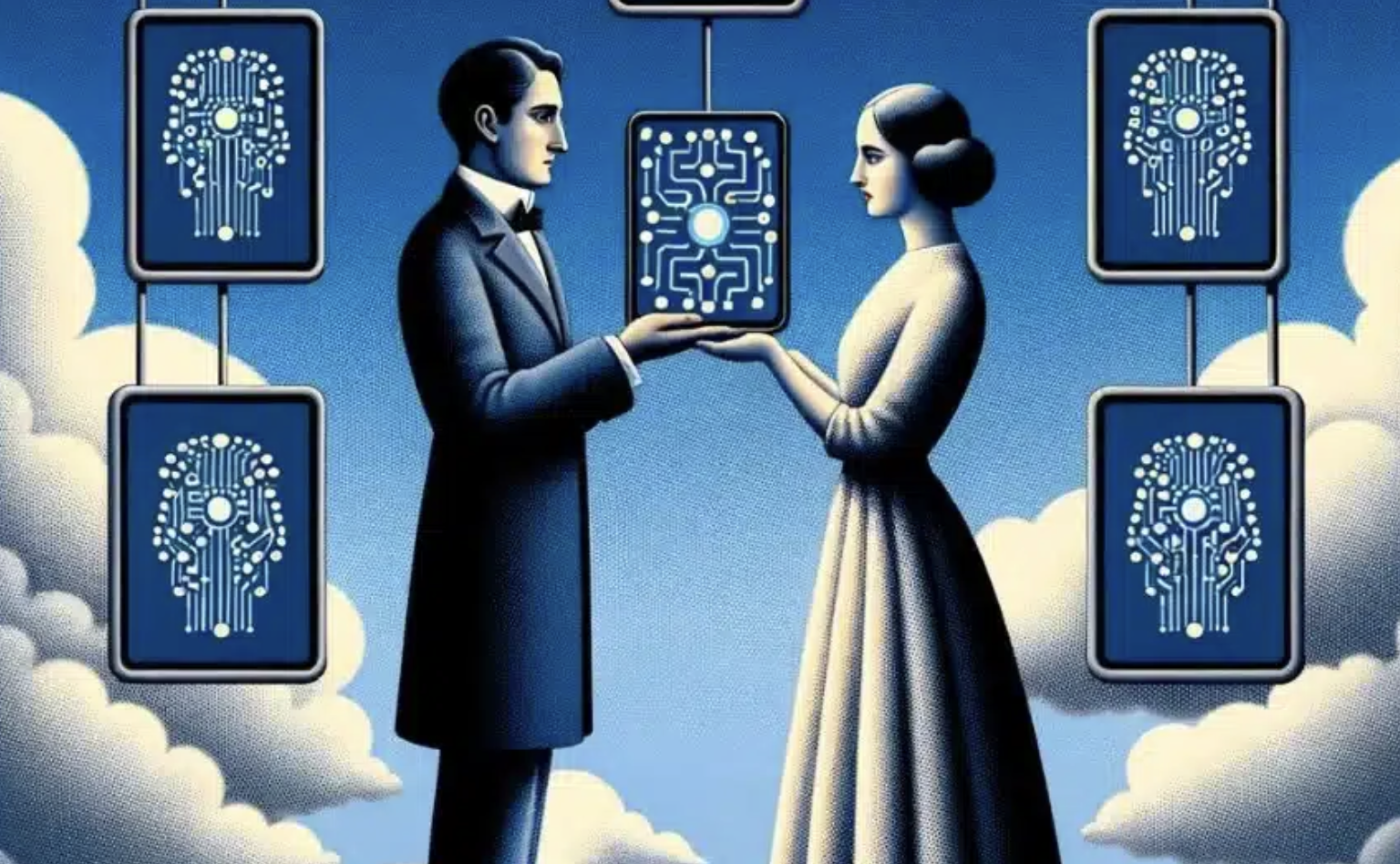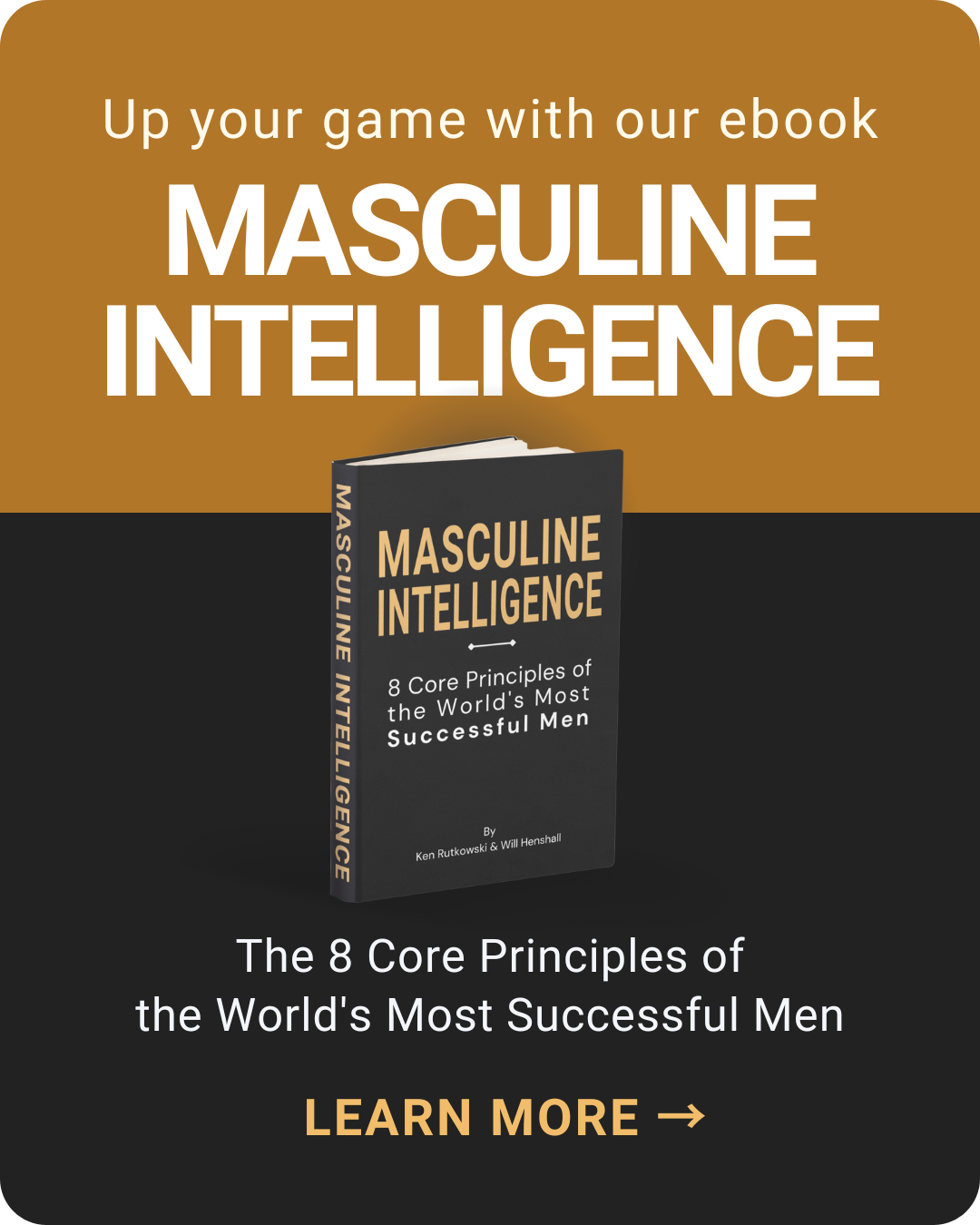
Sure, Brett King thinks AI is fun. Realistic images of dragons, busty honeypots and Trump kissing Elon.
LOL.
And sure, AI is utterly changing the speed of production across industries.
But have you considered how AI (augmented by quantum computing) will change the very way human beings create and experience meaning in our lives?

Brett King thinks about it every day.
Host of The Futurists Podcast and called the “King of Disrupters,” he seems to have both eyes riveted on a future most of us can’t see – or even imagine. In a recent episode of METAL TALKS, he opened a window on the future of international trade, quantum computing-induced infrastructure meltdowns, the end of cancer… and, notably, a revolution in how we experience the very meaning of human life.
Watch Brett King at METAL
It’s a broad spectrum of thought so let’s – as we so often do in our individual lives – begin thinking about money and end with a focus on the meaning of life.
A NEW CURRENCY
While the US is the world’s most robust economy, our insularity is blinding us to an emerging reality led by the BRICS alliance (Brazil, Russia, India, China, South Africa, Iran, Egypt, Ethiopia, & the UAE). The obvious focus today is a kind of currency to dethrone the US’s ability to impose sanctions, but something much larger is afoot.
“Autonomous global trade is going to need some sort of tokenization. Supply chain automation for the BRICS nations will probably become the template for a lot of global automation. The EU's not gonna lead on that front, although the digital euro rather is a model. It's not gonna be a currency in the way you think of the US Dollar or a currency you'd save. It's a machine-read currency. Something only for wholesale trade, cross-border trade.”
DO ALIENS TRADE IN ELECTRIC DOLLARS?
Hollywood, King points out, has trained us to believe that super-intelligent beings will arrive and have similar enough operating systems that Jeff Goldblum could hack their computers.
But the superintelligence that is coming will be closer to us than that, and will happily accept VISA charges, or more likely some version of digital coin.
It may also crash our entire economy and access to food and water.
“We think about super intelligence as something external, not necessarily something that we've created. But we are creating it with AI right now. We are creating compressed intelligence – and it's already appearing in influencer avatars.
“AGI is gonna happen because the market is pouring huge amounts of money into it. It's a much more efficient form of intelligence. Eric Schmidt recently said something I think is true. Superintelligence is going to come to us like a sunrise. It's gonna happen gradually. And then suddenly. We are going to wake up and it's just gonna be with us.”
Compressed intelligence is developing along a few different lines. AGI is what the market is pushing now.

“But at the same time, while deep learning is a sort of a core set of assumptions that we're using today for large language models, we are experimenting with different types of training. These multimodal AI models, such as Gemini, are proving to be more successful. But what we have today is not what's going to get us to … AGI. The LLM stuff is showing us what’s next and here’s where quantum comes in.”
And this is where big government and their militaries come in as well.
“On the AI side, every major government in the world is trying to crack the AGI thing, because obviously, these platforms are going to be extremely critical, commercially.”
And militarily…
Q DAY IS D DAY (“D” FOR DESTRUCTION)
Quantum computing is complex. The technology is finicky, precise, and requires extraordinary isolated, sound-proofed, and cold physical conditions to function.
“The easiest way to explain the power of quantum in simple terms is, if you have an eight-bit processor, as we do today, you have 256 possibilities. And that eight-bit processor can process one of those possibilities. It can calculate one of those 256, but with an 8-qubit quantum computer, you can do all of those 256 outcomes simultaneously.”
“We're gonna be looking at about a hundred-thousand-qubit quantum computer. We're about five to seven years away from that, according to the CEO of IBM. What are the implications of this? Well, remember in August of 2022, when the U.S. Military sent up an F-22 to shoot down a Chinese weather balloon? First of all, it's not a weather balloon. This was a signals intelligence-capturing device. That's why the US Military shot it down. What was China capturing? They're capturing internet, intelligence, and radio signals; intelligence that is encrypted. They're capturing military signals and government encrypted communications.”

Why should we be concerned, he asks, since everything is encrypted?
“Well, China spent 20 billion dollars on their quantum program last year, and they're spending the equivalent of that right now, because they believe they're going to be able to crack all encryption. Not today but when they – or we – get a hundred-thousand-qubit quantum computer, we hit what’s called Q Day. Q Day is when all existing RSA encryption is basically blown away. Banking systems, telecommunications systems, the military, etc., etc. Think about what it means for electricity, infrastructure, stock trading systems, [and] utilities, when the North Koreans or the Chinese have access to a quantum computer that can break through any of our existing encryption.”
PRIVACY GOES POOF!
What does the end of our current systems of encryption mean? Does quantum eliminate privacy? Does it break open all existing confidential technology?
It seems so.
“Imagine,” King posits, “being able to read the the dispatches between Tony Blair and George Bush during the Gulf War. Imagine having all access to that information blown open. Imagine being able to read encrypted government communications from the past as well as the present. This is the sort of thing that theoretically could happen with quantum breaking. All of this existing encryption that we have today vanishes in a day.
“The US military is taking this threat seriously, spending a trillion dollars on upgrading quantum so our digital information and infrastructure will be quantum proof, or ‘post quantum era’ as we call it.”
BUT WAIT – THERE’S QUANTUM GOOD AS WELL!
When King says quantum + AI will change everything, he means for the better as well. Specifically in health and longevity, labor, and nothing less than the meaning of life.
“On the flip side,” he adds, more cheerily, “what quantum does is show us probabilistic approaches to problems that we can't really figure out today. That will enable us to solve incredible problems. For example, new material science and new approaches to physics. We think quantum computing will be able to tackle things like dark matter and its relationship to the universe.”

In practical day-to-day terms, it also means massive improvements like algorithmic longevity hacking. “If you want to simulate changes to gene therapy and see how that plays out, quantum is going to be able to do that in unique ways. By 2025, breast cancer is going to be largely curable. We have very mature technology now using artificial intelligence to do diagnostics and quantum is gonna take us to the next next level, including in terms of drugs and so forth.”
There will also be tectonic improvements in education.
Just as kids today grow up with internet access or a smartphone, the children born today will be growing up with an AI companion.
“Education is sort of broken today. But every child is going to live with an AI that's going to be their personalized instructor and teacher. And at the same time, you'll be training your personalized AI for your interactions in the future based on behavioral inputs. Everyone will be training our own agents.”
If a child wants to learn a foreign language, you won’t be sending them off to a class. An AI instructor will already be embedded in their life.
This scale of change is not some sci-fi fantasy. It will affect how we work… and, indeed, why we work.
“Sam Altman is taking bets on the coming of the billion-dollar unicorn single-person operation. Compressed intelligence will be the greatest productivity tool in the history of economics. That’s why you start to understand why we hear all this talk about universal basic income because the intent of AI, as its being developed today, is to eliminate human labor from the workforce. It doesn't mean we won't work any more. It just means in terms of the production elements of society, it's going to be highly autonomous.”
Another change will be in the augmentation of humans, as with Neuralink. These new technologies will enhance the speed of our intellect and not only just to keep up with AI.
King remarks that Arthur C. Clarke's famous quote that any sufficiently advanced technology is indistinguishable from magic was originally “indistinguishable from God.”
“Clark changed it because of the pressure of the religious infrastructure. But super intelligences can be thought of as a kind of divinity. This would theoretically have us allow AI to have much more control over the way society operates.”
King asks, “what happens with the emergence and convergence of augmented intelligence with AI? How is that going to affect the philosophy of the human species and things like religion?”
INFINITE INTELLIGENCE AND “THE MEANING ECONOMY”
Growth. Work. Money. Meaning. It’s all going to change.
“You can't have infinite growth on a finite planet,” says King. By the end of the 2030s, we will come up on the limit to growth, where we will realize that this infinite computing power gives us infinite productive capability. But in doing so, we would destroy the planet because we'll be able to use the resources so much more effectively.”
In this way, AI and quantum will require a fundamental shift in our economic, social, and philosophical foundations.
“The only way forward for humanity is to go to degrowth economies, and look at comprehensive sustainability. There was an IMF study a couple of years ago that showed humans won't be working the way we currently think of it in this future; not working for labor. We'll be looking for much more meaningful pursuits.”
King calls this the Yin and the Yang of our new technological era. “There is a battle between scarcity, economics, and sustainability, on the one side, and a wholly different kind of growth on the other side: growth in intelligence rather than in economic value.
AI researcher and writer David Shapiro has named this the Meaning Economy.
“In the Meaning Economy, generated by this AI and quantum age, the post-labor economy, the only jobs that we'll have left are regulatory roles focused on meaning, emotion, and passion: live experiences and caring for humans. This is really what the economy will be evolving into. As we get smarter, what we're going to understand is that economics in the way we've thought of them are meaningless for the advancement of the human species. Yes, innovation for the sake of innovation is nice, but we can take humanity to the next level. But to do so, we have to move off our view of what money and power are, because infinite intelligence allows us to do so much more.”
So while nearly everybody looks at AI and quantum in terms of economic advantages, King is looking a little further – and a lot deeper.
“We have to start thinking about who we are as we become godlike ourselves,” he projects, “because of these new capabilities. We will ask what are our aspirations as a species? What then will be our purpose and our aim?”
Written by Adam Gilad
Trending Now
Big Companies are Talking More About AI Risks than Benefits: Over two-thirds, specifically 69.4%, of Fortune 500 companies have referenced general AI in their most recent annual reports, primarily within the context of risk disclosures. This includes risks associated with the technology's usage, as well as competitive and security threats. (Qz)
The Back-to-School Hunt for Adderall is On: For the third consecutive year, back-to-school preparations involve a rush to secure commonly prescribed medications for attention deficit hyperactivity disorder. Although the Food and Drug Administration indicated that manufacturers are nearing demand levels, these stimulants are still difficult to find, with pharmacies reporting shortages and the Drug Enforcement Administration enforcing stricter regulations. (Axios)
New Insights Into Driver of Age-Related Immune Decline: Recent research has unveiled the reasons behind the age-related decline of a crucial immune organ, the thymus. This breakthrough could pave the way for enhancing weakened immune systems in the future. Situated behind the sternum, the thymus is unique in its ability to produce T cells, which are vital for identifying and neutralizing pathogens like viruses and bacteria, as well as eliminating infected, malfunctioning, or cancerous cells. (Cosmos Magazine)



